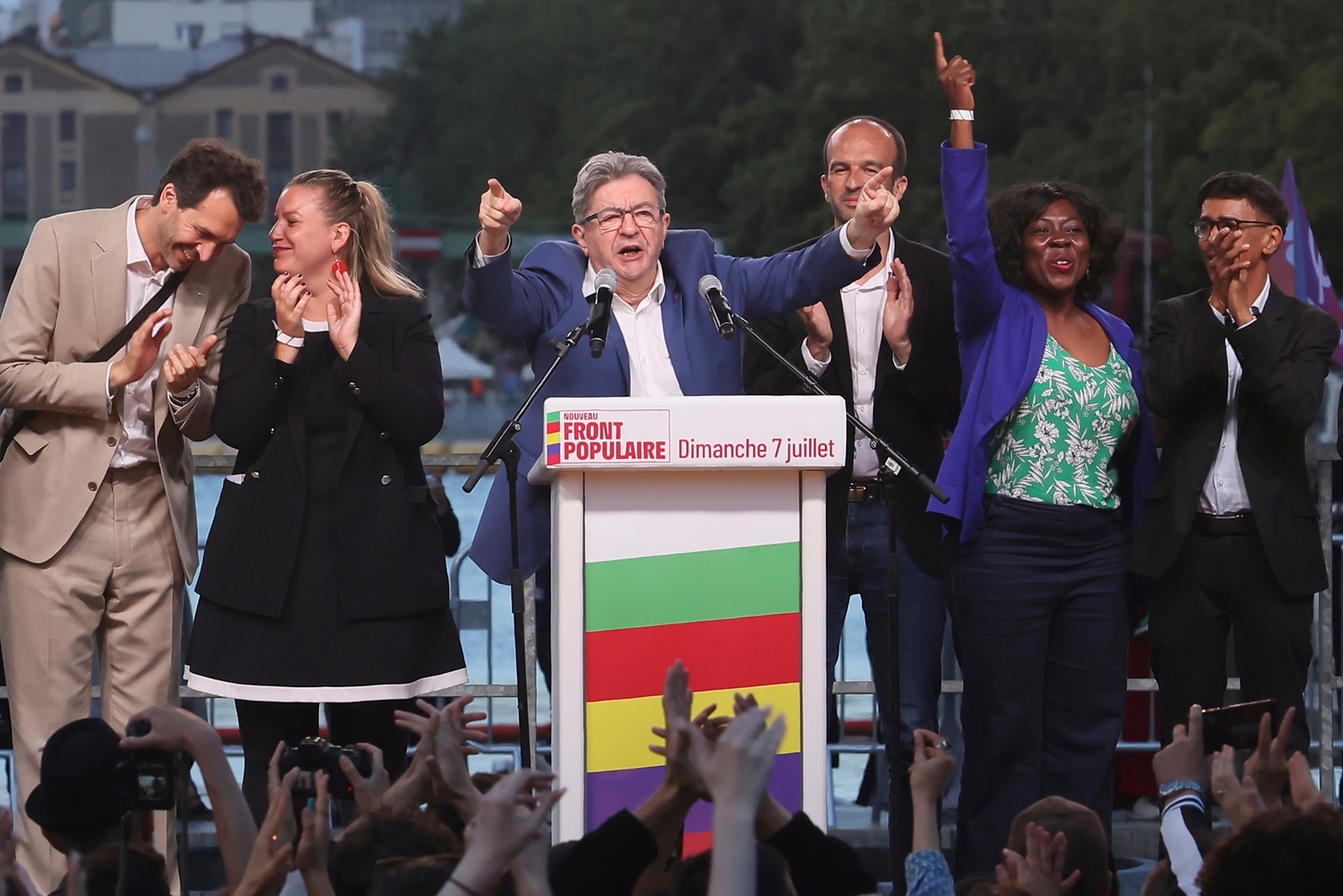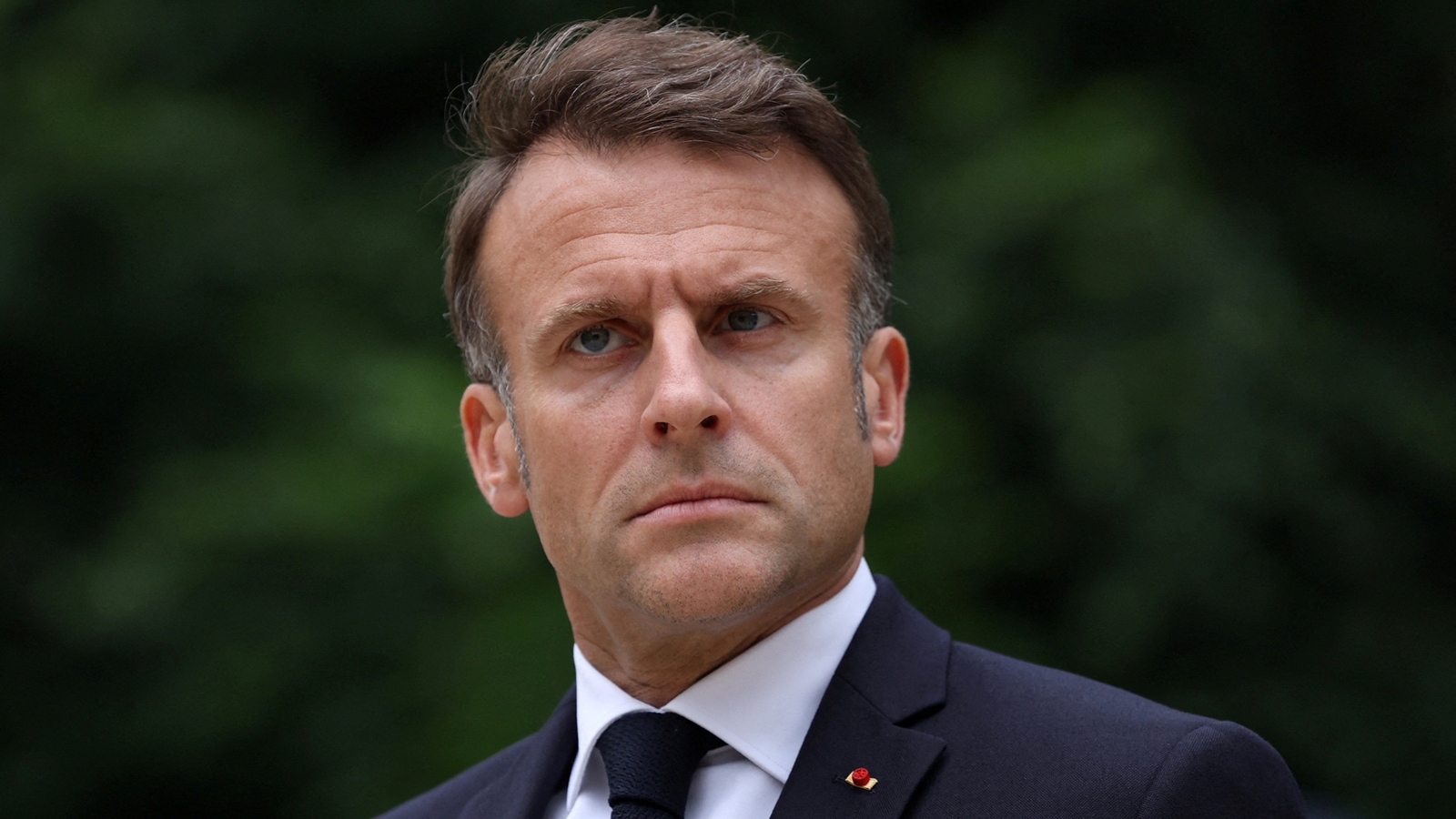In the short span of a few days, two of Europe’s largest countries, the UK and France, voted in elections to move the political dial to the left, thereby bucking a world trend of right-wing electoral victories.
Like the UK, France went to the polls on a call for snap elections by its leader. President Emmanuel Macron’s decision to dissolve the National Assembly on June 9 in the wake of the far-right National Rally’s (NR) victory in the European parliamentary elections and call for quickfire polls in a mere three weeks baffled the country, including his own prime minister. With just weeks to go for the Olympics that France is hosting, this move defied logic. If the strategy behind it was an attempt to shore up support for his own embattled minority government, stall the far right and pull the political rug from under his opponents’ feet, it backfired.
The 17th legislative assembly of the fifth Republic will essentially be a tripartite one with the newly formed four-party Left-Green alliance, the New Popular Front (NPF) emerging as the frontrunner with 178 seats, Macron’s centrist party, Ensemble (ENS), down to 150 deputies while Marine Le Pen’s NR has garnered 142 seats. The remaining seats of the 577 assembly are shared between unaffiliated Republicans, right and left-wing independents and others.
In a first-past-the-post system of voting like in India, the clear winner would have been the NR. These unexpected results that have pushed the far right down to third place are due to France’s system of two rounds of voting and the determination of left and centrist parties as well as the will of the people to stem the tide of the hate-driven, racist and fascist brand of politics espoused by the NR.

The broad left coalition, the NPF, reached an understanding with centrist and other right-wing parties to form a Republican Front to act as a barrier to the victory of the far right during the second round of voting and protect the republican values enshrined in their constitution. A decision was taken for the lower-placed candidate to bow out of the race in a three-way runoff. Around 220 politicians made the sacrifice of withdrawing to avoid splitting the vote.
The results bear testimony to this tactical voting but also to the maturity of the French voters who came out in droves to reject the hardline positions of the NR on security, law and order, refugees, immigration and Islam, often voting against their own core political beliefs just to safeguard the cherished republican values of liberty, equality and fraternity. A record near 67 per cent of the French electorate voted in the second round.
Marine Le Pen and her party have been stopped in their tracks, for now. As she declared, “The tide is rising. It did not rise high enough this time, but it continues to rise and our victory has simply been deferred.” Though the NR has been thwarted in their quest for an absolute majority, there is certainly an element of victory in this defeat as they increased their seat share from 89 to 143.
For the left coalition, the NPF, though also deprived of the absolute majority of 289, the results are an unhoped-for opportunity to govern. Macron’s gamble on early elections has proved to be their lucky break. However, with only a relative majority and without a real mandate from the electorate — the vote for them often being, in fact, a vote against the far right — fulfilling their manifesto promises and pushing through their domestic agenda will prove difficult. Meanwhile, within the alliance, jostling for the prime ministerial position has begun.
With three large opposing blocs within the national assembly and no absolute majority, the political gridlock is likely to continue for a while even as the opening of the Olympics looms. A hung parliament with no dominant party is unchartered territory for France; it has no history of coalition governments. What we are likely to witness will be the “cohabitation” of a president and a minority government from opposing political dispensations with no substantive legislation getting adopted. France is in store for a period of political uncertainty, crises and instability.
For a majority of the French, this outcome is preferable to the alternative of governance by a radical alliance. Nevertheless, a prolonged political stalemate presents a real danger of playing straight into Marine Le Pen’s hands and strengthening her position and electoral appeal in the 2027 presidential elections.
Macron’s term ends in 2027 and he has vowed not to step down before that. However, the outcome of these elections has weakened his party and his position. As it is, protests against unemployment, wage stagnation, retirement reforms, etc., have been a constant feature of his two terms. Now, many within his party are unhappy with their leader for the uncalled-for rolling of the dice which resulted in a loss of 95 seats. His attempt to perhaps preempt the anticipated no-confidence motions by the opposition later this year by holding shock elections on his terms went awry. The first-round results were a slap on the face and it was only thanks to the Republican Front that his party could salvage 161 seats.
The real loser of this election is Emmanuel Macron himself, who, isolated in his Elysée Palace, is clearly out of sync with the sentiments of the people who are disillusioned with their President. He is widely perceived as a monarch with an imperial style of governance by decree. Macron had hoped the election would provide “clarity”, instead it has plunged France into a political quagmire that will reduce its influence in the world and from which it is unlikely to emerge in the short term.
The author writes on politics, culture and current events



